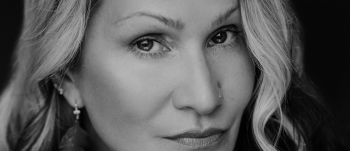Image Caption
Local Journalism Initiative Reporter
Windspeaker.com
Acclaimed Indigenous documentarian Alanis Obomsawin is featured in a new movie which will have its world premiere at the Whistler Film Festival this week.
The documentary, directed by Dr. Jules Arita Koostachin, is titled NiiMisSak: Sisters In Film. It will be screened for the first time at the Whistler festival on Dec. 6.
Koostachin is a member of Attawapiskat First Nation in Ontario. But she is currently living in Vancouver.
NiiMisSak is the Cree word for sisters. The doc shares the experiences of various Indigenous women, who are primarily from British Columbia, that are working in the film and television industry.
Obomsawin, who is 92, has written, directed or produced dozens of films over the years. She was born in New Hampshire but grew up on Odanak First Nation in Quebec.
One of her best-known projects was the 1993 film called Kanehsatake: 270 Years of Resistance, which is about the 1990 military siege of a First Nation near Oka, Que.
Kootstachin said she first met Obomsawin while attending university in Montreal. Obomsawin’s daughter was one of Koostachin’s classmates and a close friend.
But it was a bit later when Koostachin figured out exactly who the elder Obomsawin was.
“I watched 270 Years Of Resistance and then I made that connection that my friend’s mom was this well-known documentarian,” Koostachin said. “I just used to go to her house and eat. That’s all we did in university. We were just hungry. And then I made that connection that wow, your mom is amazing.”
Obomsawin provides both opening and closing statements in Koostachin’s film about the importance of having Indigenous women in film.
Koostachin said it wasn’t that difficult to have Obomsawin participate in her latest doc.
“Anytime I talk to Alanis about film, she’s a yes,” she said. “That’s her passion.”
Koostachin said it was rather key to include Obomsawin’s observations in the film.
“I really thought with NiiMisSak you need to start with the matriarch,” she said. “So, I was like Alanis, I’m making a film about these B.C. Native women who are in film. But I thought it would be important, since I’m one of those people, B.C. filmmakers, to include her story and her connections because everybody knows Alanis around the world as an Indigenous woman documentarian.
“I just thought it would be important to have that personal connection in there to start the story as she has paved the way for other filmmakers.”
Established and emerging Indigenous filmmakers are also included in the film. These filmmakers include Marie Clements, Jessie Anthony, Kayah George, Tristin Greyeyes, Kira Doxtator and Asia Youngman.
Koostachin herself interviews all of these filmmakers.
“I’m pretty happy with our guests,” Koostachin said. “I think they’re all phenomenal.”
But she said the film did not work out as she had originally envisioned.
“I wanted to do more but budget now in the film industry is now really tight,” Koostachin said. “My goal with this film initially was to get everyone in the same room. But it didn’t happen sadly, with travel and accommodations and everybody’s schedule.
“I really wanted to have kind of a roundtable discussion with all the women and Alanis kind of leading the way. And then have that shot in this studio space where you see the cameras and then you see the makeup. I just wanted to have all these incredible women in one space. But it still worked out fine. It’s great.”
Koostachin said she was keen to make a statement about Indigenous representation in the film industry with her latest documentary.
“There’s so many training programs and mentorship programs and observation opportunities to be on set,” she said.
But she also pointed to a Women In View report, which was released last year. Koostachin said that report found that Indigenous women represent about 0.1 per cent of the directors of films. And Black women are about the same.
“So, I thought this would be an important film to kind of speak to how do we kind of break the glass ceiling in a way and create opportunities for BIPOC folks or women to break into the industry,” she said. “And the other thing I think was this film was a statement about self-producing.
“We’re always in this kind of constant state of creating our own work. But in turn, even though that’s difficult and challenging, we don’t ever always have the funds.”
Koostachin said those Indigenous filmmakers who are self-producing are learning as they go along.
“It’s a trial and error kind of thing,” she said. “But we’re getting actually pretty damn good at it. So, can you imagine if we actually had healthy budgets.”
Tickets for NiiMisSak’s world premiere at the Whistler festival are available at https://www.whistlerfilmfestival.com/films/2024/niimissak-sisters-in-film

